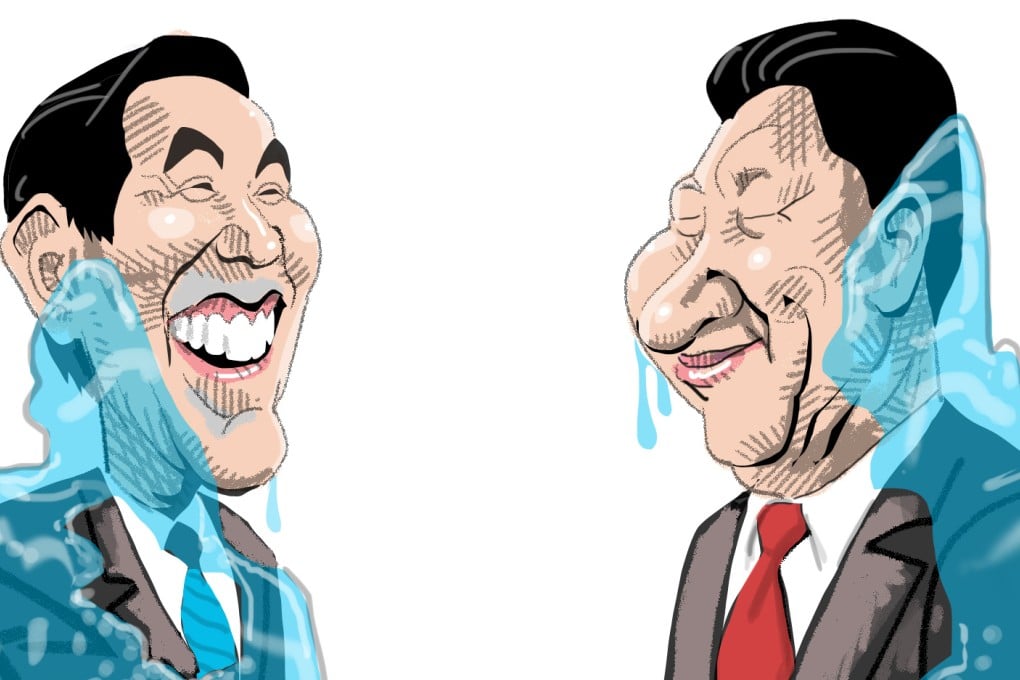Xi-Ma summit sends pointed message that cross-strait relations are now too strong to roll back
David Shambaugh says the Xi-Ma meeting, itself a display of bold statesmanship, caps a steady decline in cross-strait tension in recent years


The historic meeting between the leaders of China and Taiwan - Xi Jinping (習近平) and Ma Ying-jeou – on November 7 in Singapore was filled with rich symbolism reflecting the long distance travelled by the two rival regimes since 1949. It was the first time that the leaders had met in 66 years of separation, following the Republic of China’s retreat to Taiwan and the establishment of the People’s Republic of China on the mainland.
This extraordinary event is to be enthusiastically welcomed by the people of China and Taiwan, as well as the whole world. There is no downside to the meeting, unless one subscribes (as some in Taiwan do) to the delusion and illusion that Taiwan is an independent sovereign state. Much of the post-summit narrative and press coverage has emphasised the tactical expediency and linguistic obfuscation by both sides, but we should recognise the bold initiative for what it was: bold statesmanship. It is worthy of the Nobel Peace Prize.
We should recognise the bold initiative for what it was: bold statesmanship. It is worthy of the Nobel Peace Prize
We do not, of course, know the precise future impact that the meeting will have on cross-strait relations, but it should be viewed as a capstone of all the remarkable progress achieved under Ma’s presidency and the parallel efforts made by China’s leaders Xi and Hu Jintao (胡錦濤). It is, in fact, probably the greatest achievement of Hu’s legacy. It should also be seen as an effort to consolidate the gains made over the past seven years, as well as to put in place a framework for further development following Taiwan’s elections in January. Whoever is elected Taiwan’s leader – and in all likelihood it will be the Democratic Progressive Party candidate Tsai Ing-wen – the meeting makes it much more difficult to roll back the bridges built across the Taiwan Strait. The thick cross-strait linkages are now a reality that all of Taiwan’s politicians and citizens must live with. The question is: do they wish to push them further forward?

The two sides have travelled a tortuous course to get to this point. For Taiwan, this has included five military crises and a state of high military tension for decades (it still lives under intimidating military threat from the mainland). It included major political crises for Taipei when the Republic of China was expelled from the United Nations in 1971 and the US severed diplomatic relations and its bilateral security treaty in 1979. But the island has largely overcome these challenges by building strong substantive ties absent diplomatic relations with most nations in the world (22 states still diplomatically recognise the Taipei government). Such challenges included strenuous efforts by China to isolate Taiwan internationally and pressure it into submission. Taiwan’s government and people deserve much credit for enduring this pressure and these crises while building a modern economy, robust democracy and vibrant civil society.
Despite these accomplishments, the 23 million people on Taiwan continue to have a very mixed identity and ambivalent feelings about their relationship with the mainland. While a substantial majority endorses the “status quo” in cross-strait relations, there also exists the widespread sense that Taiwan has fallen too far under the influence of the mainland and is losing its de facto autonomy. This growing sense of dependency has fuelled the popular “Sunflower Movement” and underlies support for the DPP. China’s government in Beijing is acutely aware of, and worried about, this growing sentiment on the island – which is one reason that Xi decided to meet Ma at this time in advance of January’s elections.